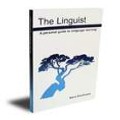English speaking Canada does not have a powerful distinctiveness. The ever-increasing variety of people who make up English Canada has meant the decline in importance of British Protestantism, the British Empire and British institutions. There is no longer a typical Canadian name, nor ethnic origin, nor religion. This lack of clear markers is what makes Canadian culture so accessible. Even the relative neutrality of the Canadian accent and the lack of regional accents make it easier for newcomers to blend into Canadian society.
In contrast, older established national groups in the world are more easily identified by common family names or identifiable physical appearance. People from these older cultures take pride in imagining their history going back for hundreds or thousands of years. The new immigrant from these older societies can have trouble stepping outside the ancestral culture which has such a powerful appeal. Often, in the mind of the new immigrant, the reality of Canadian life is contrasted with an idealized version of the society left behind. This can make the immigrant reluctant to join in the new language and society.
The children of immigrants, on the other hand, are typically more interested in just fitting into their new surroundings and new identity, and they often learn English very quickly. They become native speakers of the new language.
Human beings feel closest to family and kin. Beyond the family, however, the nature of the "in group" can vary depending on circumstances. Anthony Smith, who directed my older son Eric's post graduate study at the London School of Economics, wrote an important book entitled National Identity (Penguin). In it, Smith distinguishes two visions of national identity, which have been promoted by ruling and intellectual elites in modern times.
In one vision of national identity: nations must have a measure of common culture and a civic ideology, a set of common understandings and aspirations, sentiments and ideas, that bind the population together in their homeland. The task of ensuring a common public, mass culture has been handed over to the agencies of popular socialization, notably the public system of education and the mass media.
In the other vision of national identity: Whether you stayed in your community or emigrated to another, you remained ineluctably, organically, a member of the community of your birth and were forever stamped by it. A nation, in other words, was first and foremost a community of common descent .or rather presumed descent.
Canada is of the first kind. As the nature of human societies continues to evolve, I am convinced that attempts to freeze people's identity based on their ancestry will prove vain. When you emigrate, you are making the decision that your descendants will change national identity. Your children and grandchildren may learn to speak the ancestral language and develop an interest in the ancestral culture, but this is not certain. If they do so, it will likely be as people who are culturally Canadian.
The difference in attitude between those of the older generation of immigrants who want to maintain their traditions and their local-born children who want to focus on their new country can create a generation gap. I experienced this in my own family when I was growing up.
While it is normal for people to be proud of their origins, it is just as normal for people to want to belong to the society in which they live. National identity is not automatically passed on to the next generation, from parents to children. It has never been that simple. Traditional nationalism is created by ideology, mythology and politically motivated history writing. National myths offer images of ancestral figures from which all subsequent members of the community are supposedly descended. People are persuaded that their identity can be projected back to these ancestors, who, if they existed at all in reality, were certainly different from their present day descendants. Canadian identity is not like this, since it draws its strength from the present and a belief in a common future.
Over the last one hundred fifty years the foreign-born share of Canada's population has usually been over fifteen percent of the total. Historically, immigrants have at first encountered difficulty finding appropriate employment and fully fitting into society. Typically these problems disappear with time and by the second generation the "newcomers" are Canadian in outlook.

